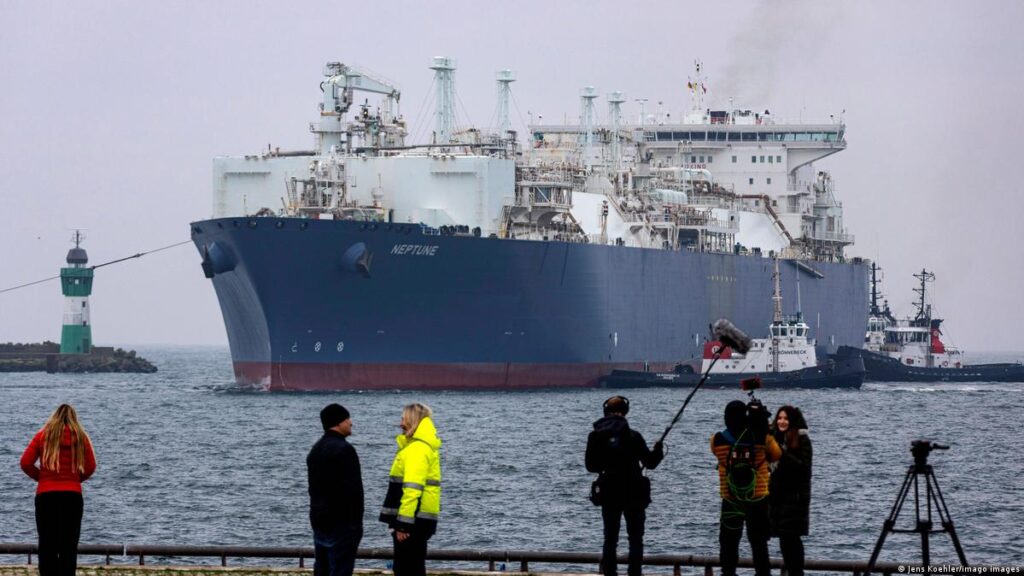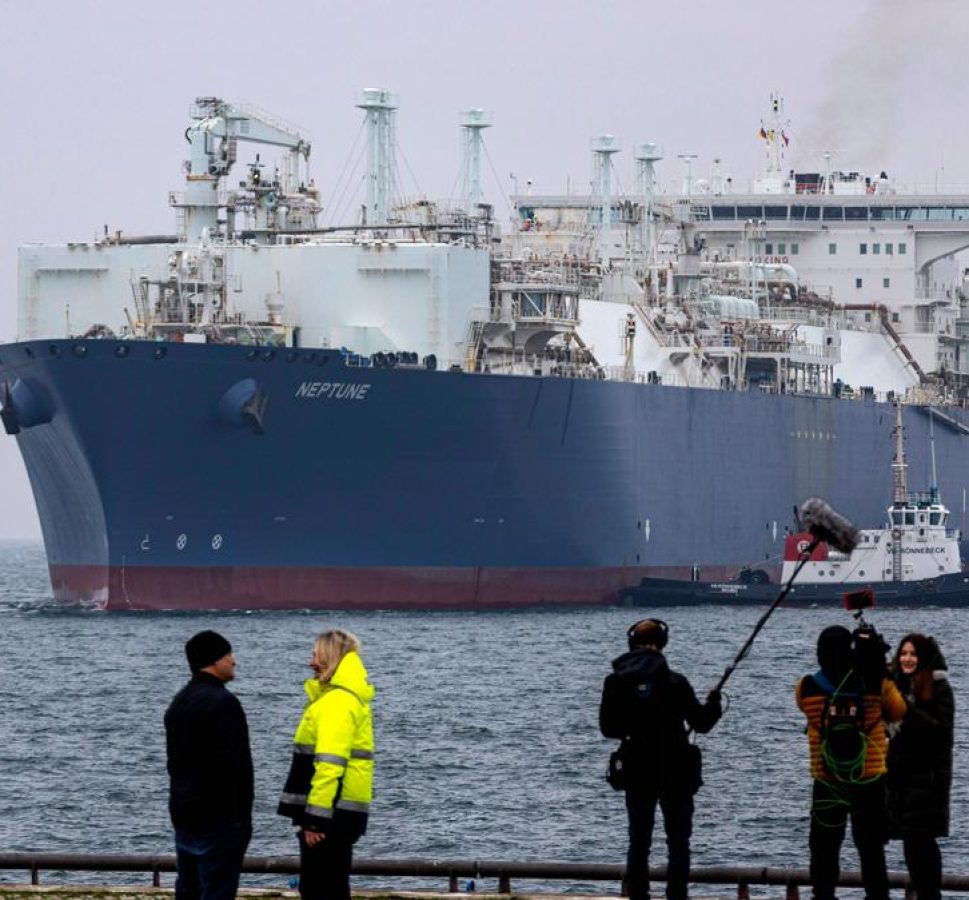
Experts are predicting a mild upcoming winter in Europe, but EU states could still face shortages of liquified gas if competitor demand rises.
The end of COVID-19 lockdowns in China has boosted the nation’s overall gas demand by 6% this year, according to a new report by UK consultancy firm Cornwall Insight.
This demand isn’t currently mirrored by an increased Chinese appetite for liquified gas (LNG), but experts note this could change during the colder months ahead.
“As China’s economic recovery drives up gas demand and worldwide events send prices skyrocketing, Europe can no longer cling to the illusion of on-demand LNG,” said Dr Matthew Chadwick, lead research analyst at Cornwall Insight.
Since Russia’s invasion of Ukraine in February 2022, the EU has relied more heavily on LNG, a move that has allowed the bloc to reduce its dependence on Russian pipeline gas.
In 2022 and 2023, an average of 11.2 billion cubic metres (bcm) of LNG were imported into the EU per month, compared with 6.6bcm per month in 2021.
Imports to member states are predominantly sourced from the US (44%), although the EU is also dependent on Russia (17%) and Qatar (13%) for LNG.
Last year, Europe managed to weather the cold months better than expected, and general gas storage inventories were 55.7% full at the end of the winter period.
The record figure was achieved thanks to mild temperatures and higher energy prices, which in turn led to reduced demand, but consultants from Cornwall Insight have advised Europeans against complacency.
“A multitude of factors, from weather patterns to surging demand in Asia, leave Europe open to potential gas shortages if it places its faith in another high-temperature, low-competition winter,” said Dr Chadwick.
Balancing LNG with going green
The European winter is once again set to be warmer than usual this year, but experts have raised concerns about the effects of global events on LNG supply.
The Israel Hamas war, gas worker strikes in Australia, or damage to the Balticconnector pipeline, are all examples of how wider instability can push up wholesale energy prices.
As China and other Asian nations are able to pay higher prices for gas than the EU, this leaves the bloc in a vulnerable position.
One solution here is to secure more long-term LNG supply deals instead of relying on so-called ‘spot market purchases’, which are essentially immediate but volatile transactions.
In pursuit of future energy stability, the EU has also been improving its infrastructure to combat trade bottlenecks.
The bloc’s import capacity can meet around 40% of its total gas demand, but access to LNG infrastructure is still uneven throughout member states.
Yet when considering long-term energy plans, Cornwall Insight has nonetheless advised the EU to stay focused on its climate targets.
Analysts say that whilst LNG emits 40% less CO2 than coal and 30% less than oil, it remains a significant source of carbon emissions, meaning it should only be viewed as a transitional solution.






